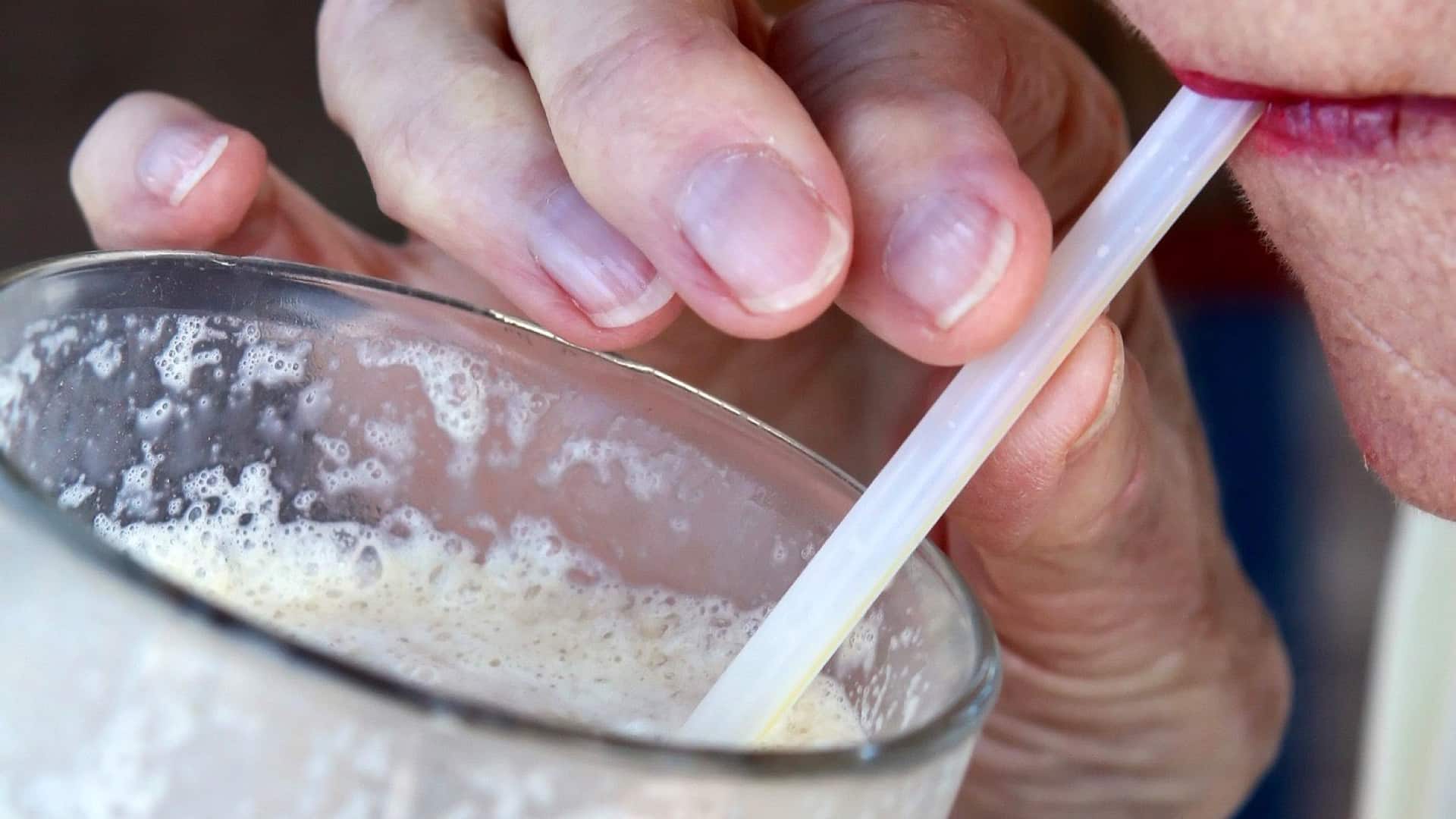
Parkinson's Disease
Parkinson’s Disease Symptoms
Parkinson’s is the second most common neurodegenerative disease after Alzheimer’s. It is a disabling disorder affecting the speed, quality, and ease of movement. Its hallmark symptoms, which worsen as the disease progresses, include hand tremors, limb stiffness, impaired balance, and difficulty walking. It can also affect mood, thinking, and sleep.
What Causes Parkinson’s Disease?
The disease typically presents itself after age 50 and is caused by the die-off of specialized nerve cells in a region of the brain that controls movement. A history of head trauma can increase risk, which may be why heavyweight boxers and NFL players have fallen victim to the condition. However, most people may be more likely to develop the disease from toxic pollutants in our environment that can build up in the food supply and eventually affect the brain.
Individuals with Parkinson’s disease have been found to have elevated levels of an organochlorine pesticide in their bloodstreams, the class of largely banned pesticides that includes DDT. Autopsy studies have also found elevated levels of pesticides in the brain tissue of those with Parkinson’s. As well, elevated levels of PCBs and other pollutants have been found, and the higher certain PCB concentrations, the higher the degree of damage specifically in the brain region thought to be responsible for the disease. Although many of these chemicals were banned decades ago, they may persist in the environment, and you can continue to be exposed to them through the consumption of contaminated animal products, including dairy. People who eat dairy-free, plant-based diets, on the other hand, have been found to have significantly lower blood levels of the PCBs implicated in the development of Parkinson’s disease.
How to Avoid Parkinson’s Disease
Parkinson’s disease is not currently curable, but there are a number of simple things you can do that may decrease your risk of getting Parkinson’s disease. You can wear seat belts and bicycle helmets to avoid getting hit in the head, exercise regularly, avoid becoming overweight, consume peppers, berries, and green tea, and minimize your exposure to pesticides, heavy metals, and dairy and other animal products.
For substantiation of any statements of fact from the peer-reviewed medical literature, please see the associated videos below.
Image Credit: Pixabay. This image has been modified.
Popular Videos for Parkinson's Disease

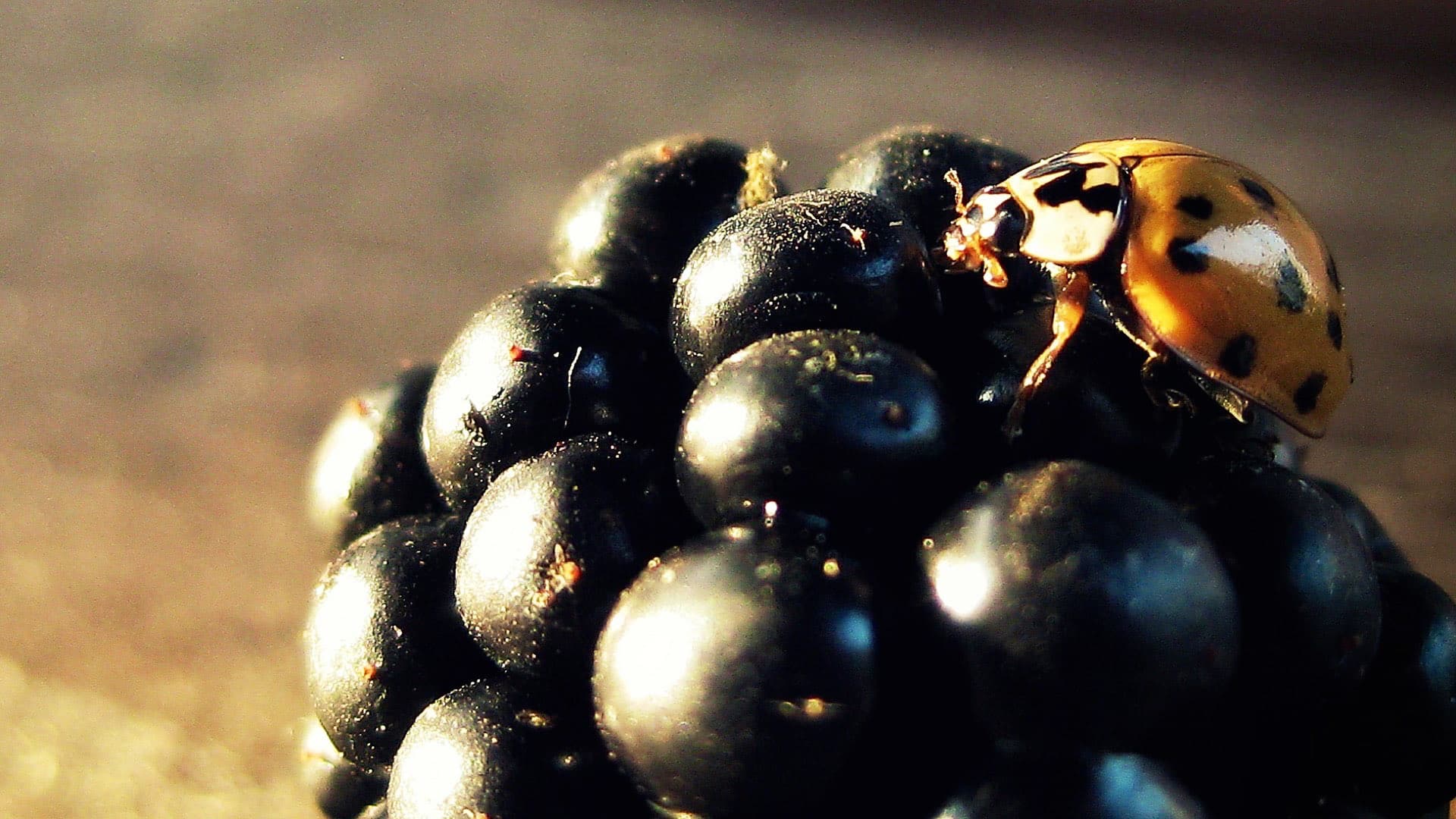
Berries vs. Pesticides in Parkinson’s Disease
Berries counteract the neurotoxic effects of pesticides in vitro, potentially explaining why berry consumption is...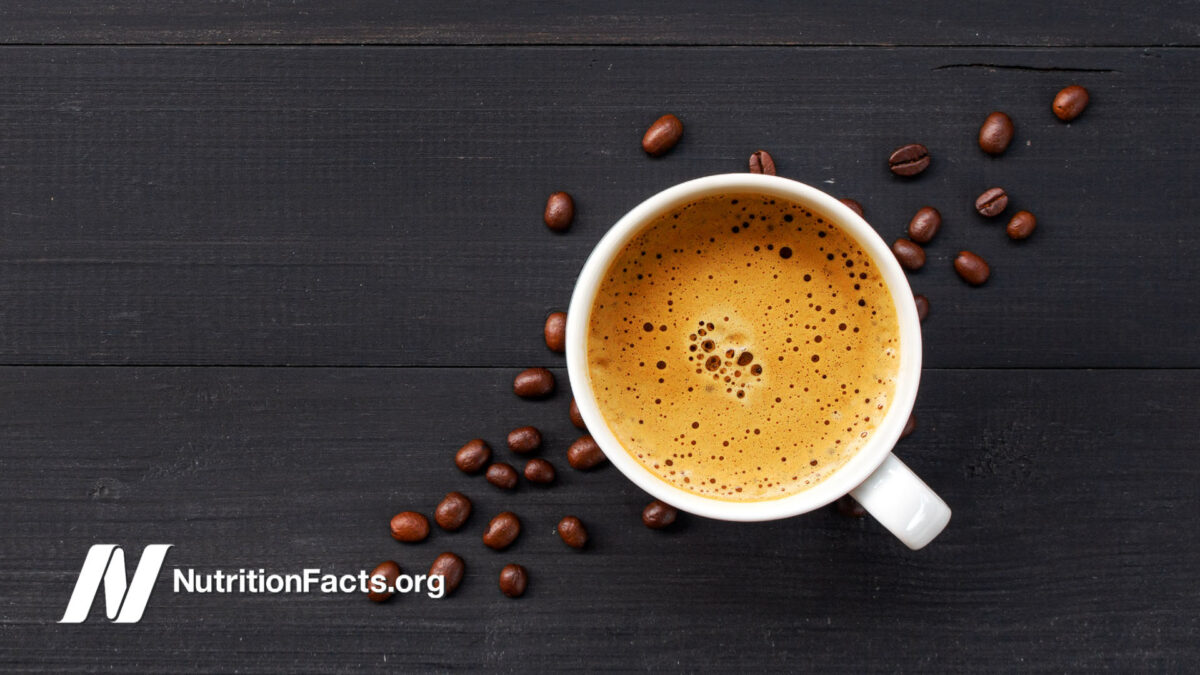
Coffee Put to the Test for Treating Parkinson’s Disease
Coffee can improve Parkinson’s symptoms within three weeks compared to placebo, but do the benefits...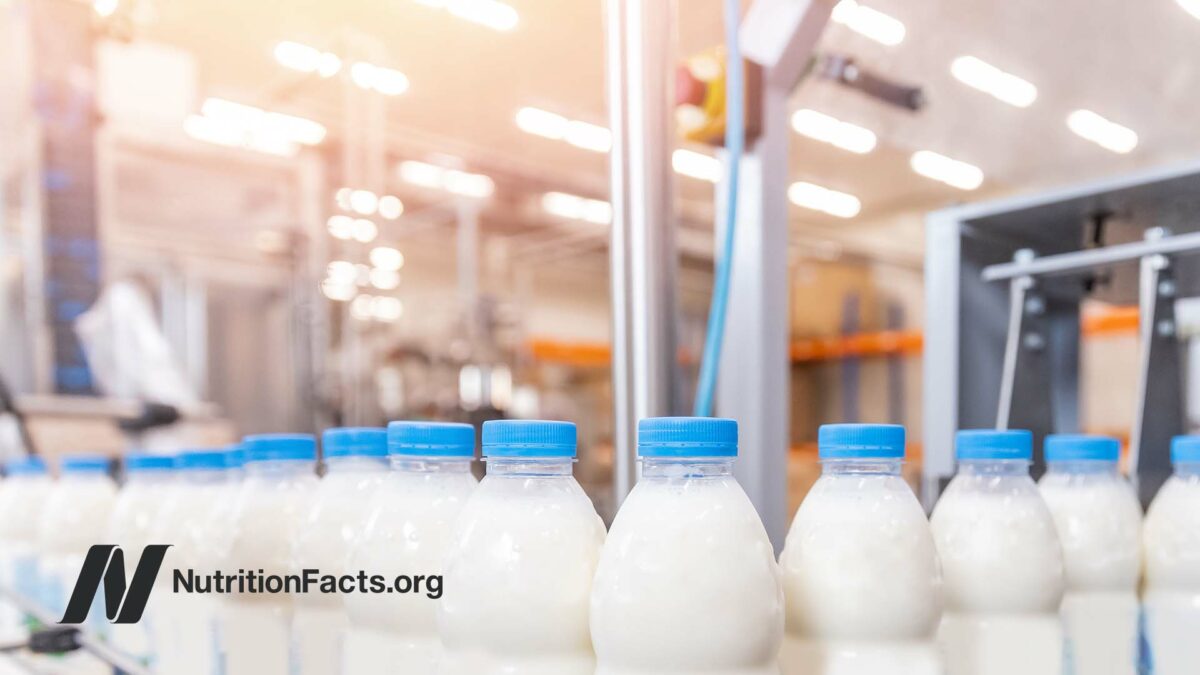
Could Lactose Explain the Milk and Parkinson’s Disease Link?
Neurotoxin contamination of the dairy supply doesn’t explain why the association between Parkinson’s and skim...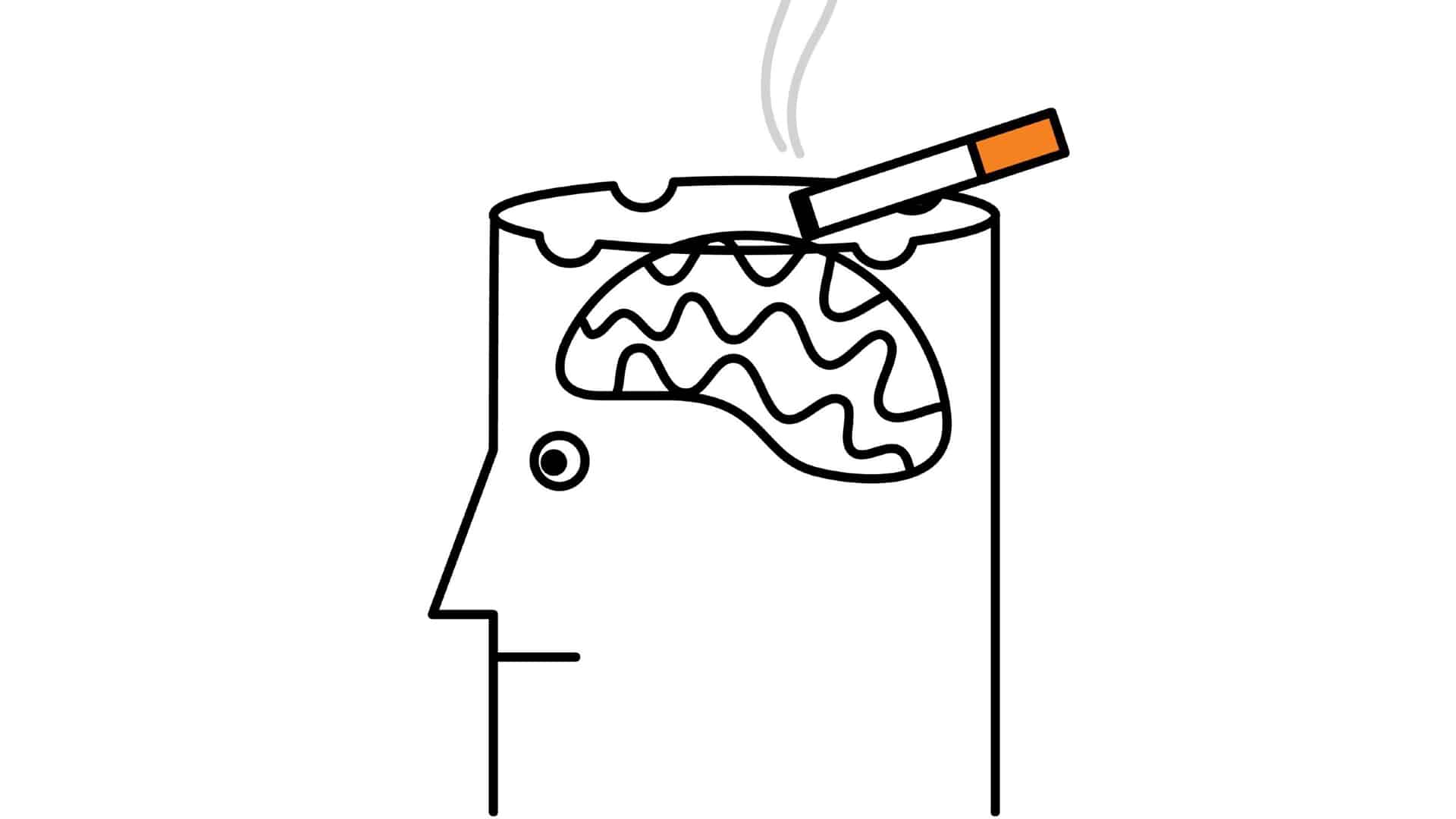
Is Something in Tobacco Protective Against Parkinson’s Disease?
The tobacco industry points to dozens of studies purporting to show tobacco use is associated...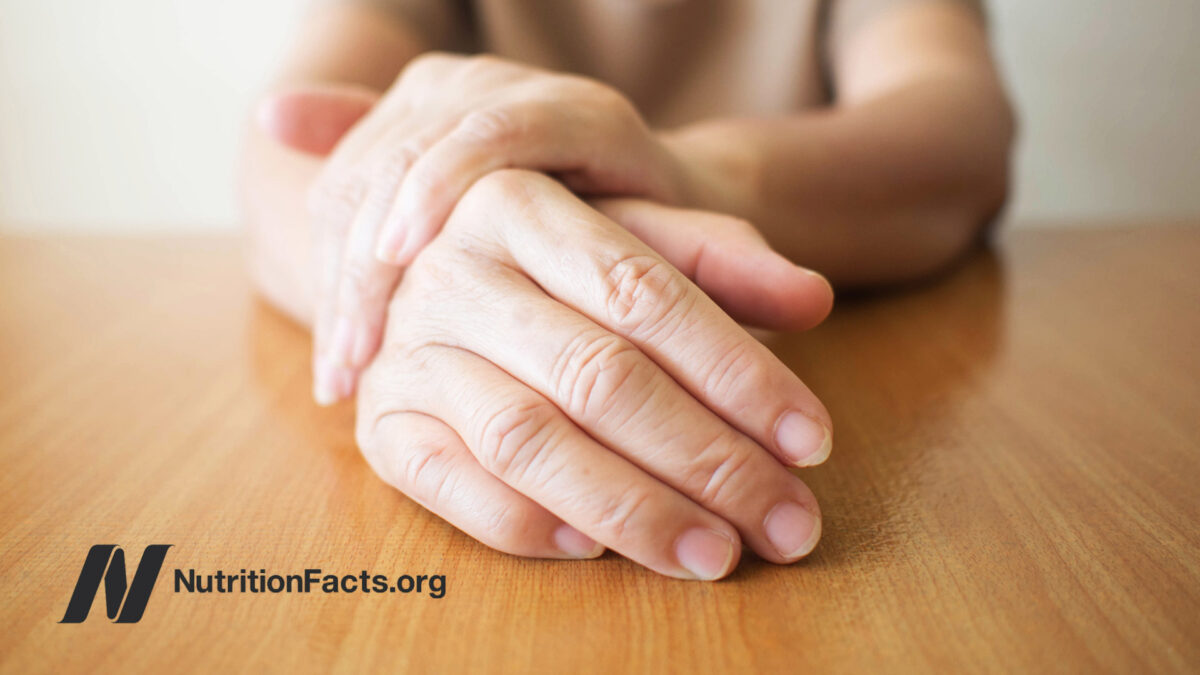
Low-Protein Diets for Parkinson’s Disease
How might we maximize the therapeutic efficiency of levodopa?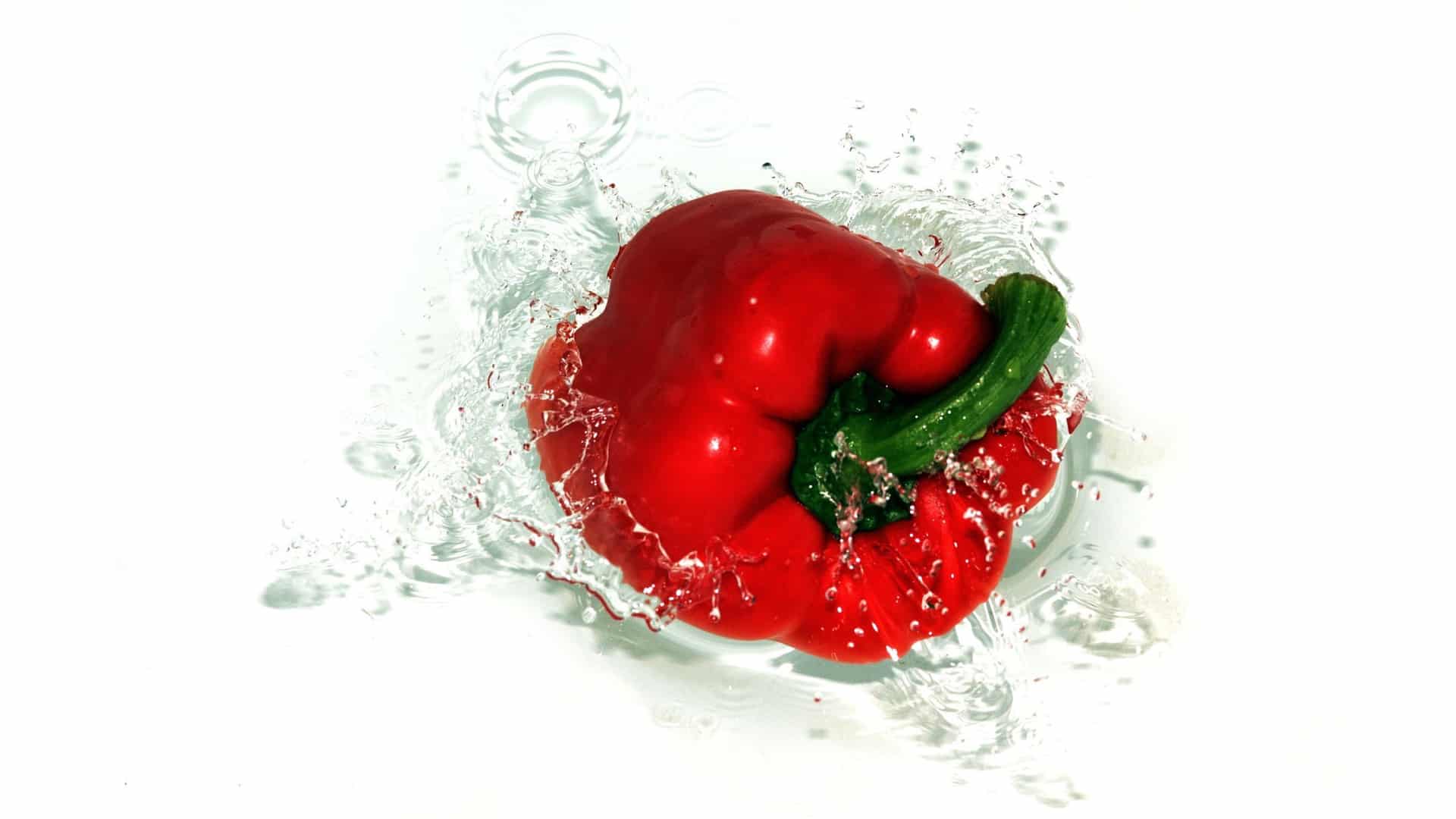
Peppers and Parkinson’s: The Benefits of Smoking Without the Risks?
Might the nicotine content in nightshade vegetables, such as tomatoes, potatoes, eggplants, and bell peppers,...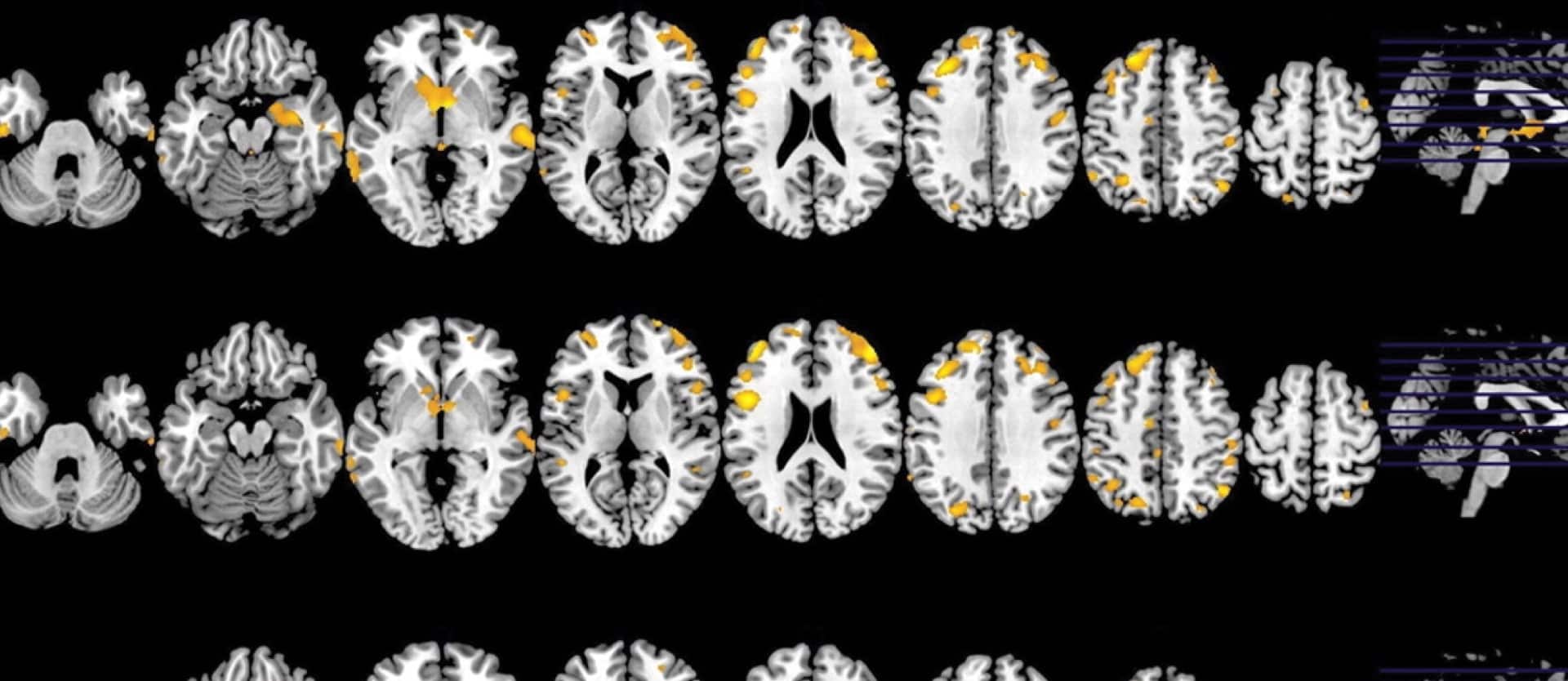
Preventing Parkinson’s Disease with Diet
Low levels of neurotoxic chemicals in cheese may explain the connection between dairy product consumption...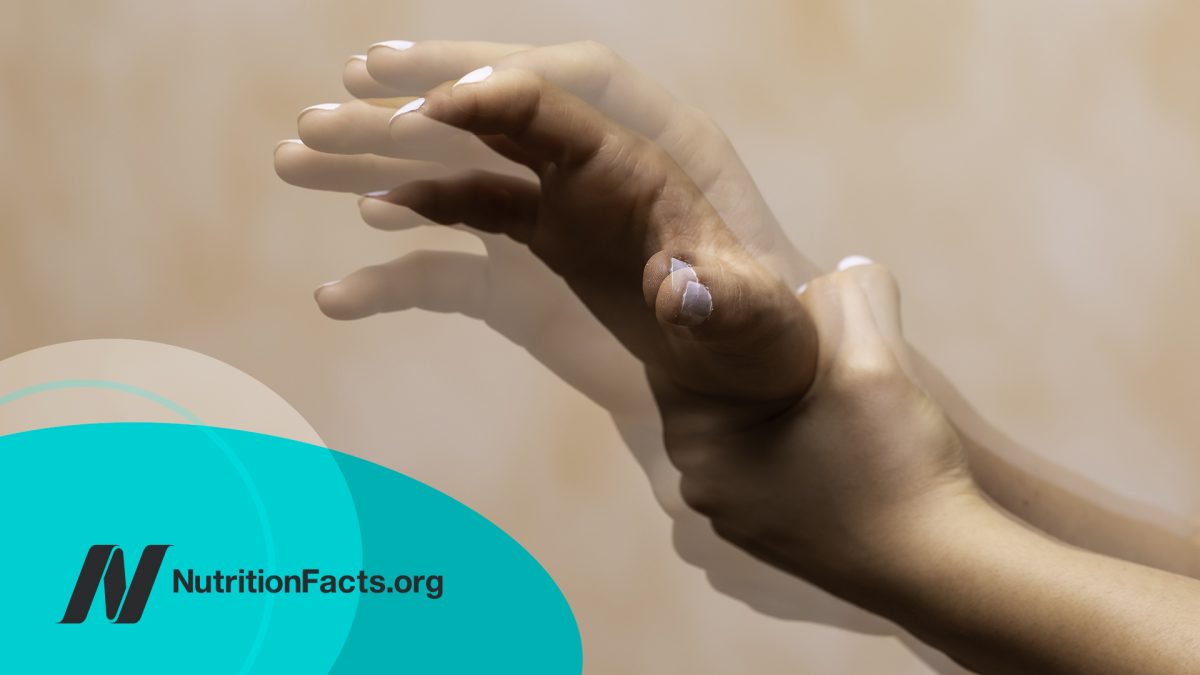
The Role Meat May Play in Triggering Parkinson’s Disease
What does the gut have to do with developing Parkinson’s disease?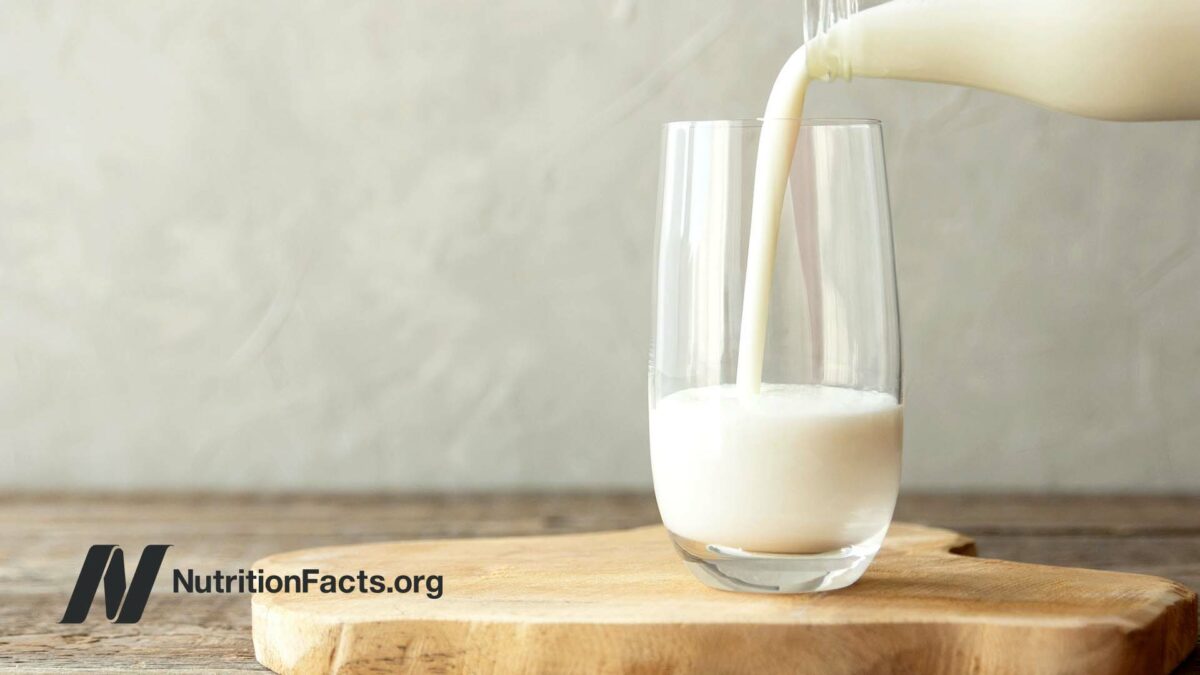
The Role Milk May Play in Triggering Parkinson’s Disease
Is the brain damage associated with milk consumption due to the banned pesticide heptachlor or...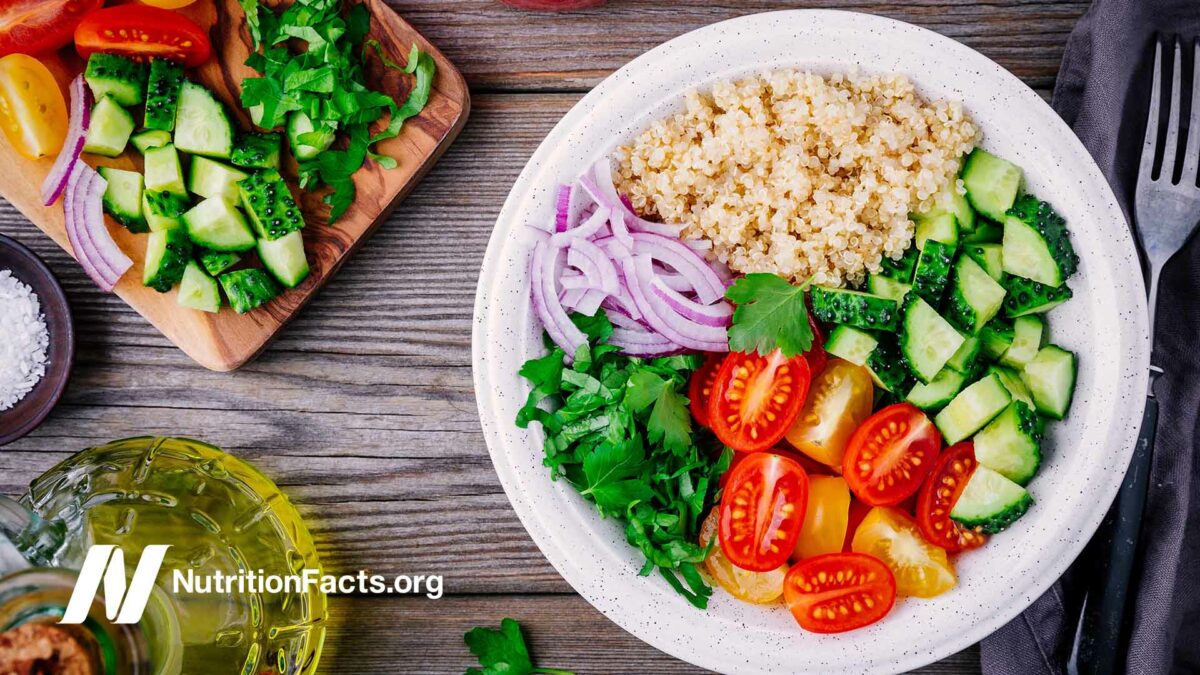
Treating Parkinson’s Disease with Diet
Plant-based diets in general, and certain plant foods in particular, may be used to successfully...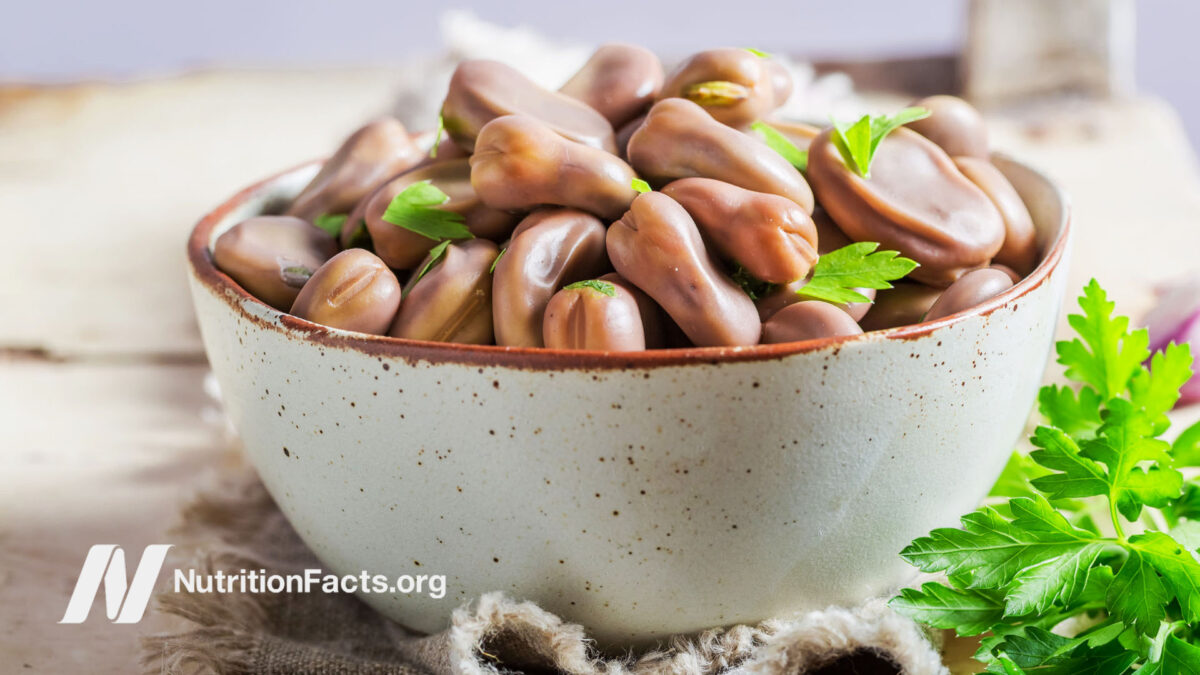
Treating Parkinson’s Disease with Fava Beans (Faba or Broad Beans)
Fava bean sprouts and soy nuts are put to the test for Parkinson’s disease as...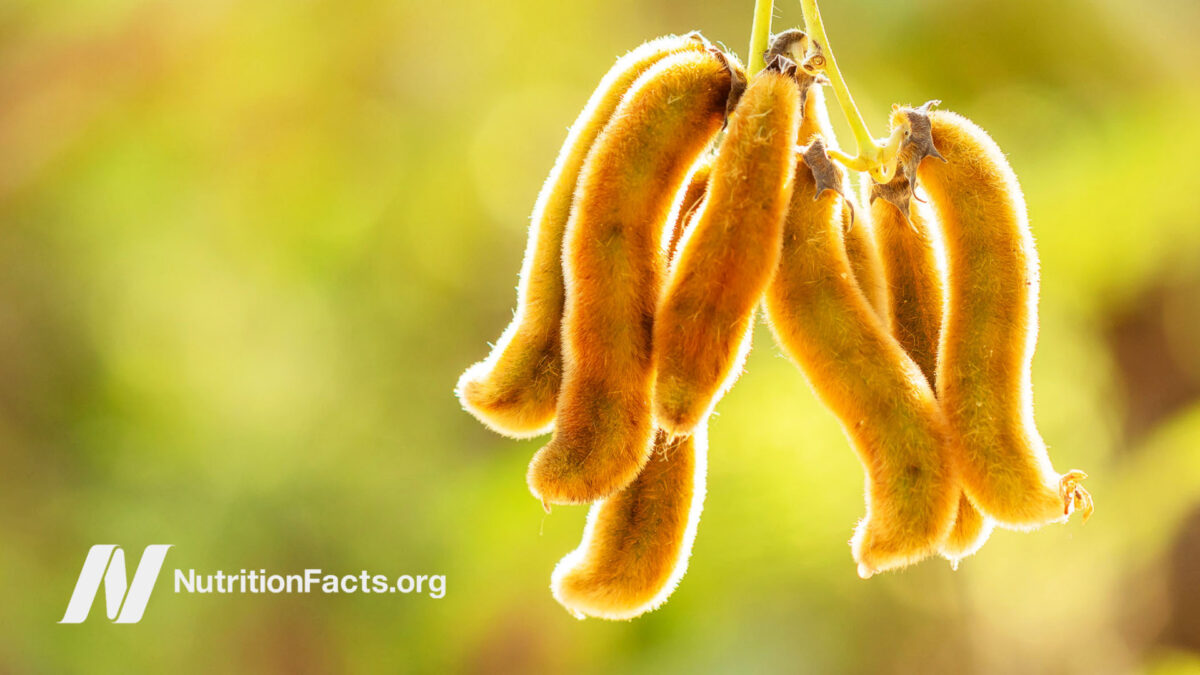
Treating Parkinson’s Disease with Velvet Beans (Mucuna pruriens)
Since Parkinson’s is caused by a dopamine deficiency in the brain, what if you ate...All Videos for Parkinson's Disease
-

Caveats and Side Effects of Taurine Supplements
What are the downsides of taurine supplementation?
-

Does Coffee Help Boost Autophagy and Lifespan?
In terms of longevity, three cups of decaf coffee appeared to be just as protective as three cups of regular coffee.
-

Do Not Eat Pawpaws
Pawpaw fruits, like soursop, guanabana, sweetsop, sugar apple, cherimoya, and custard apple, contain neurotoxins that may cause a neurodegenerative disease.
-

Risks and Benefits of Nicotinamide Riboside (NR), a NAD+ Booster
The suppression of NAD+ synthesis by NR in humans may explain the disparate rodent results.
-

Risks and Benefits of Nicotinic Acid (NA), a NAD+ Booster
Given niacin’s decades of use as a cholesterol drug, we have a good idea of its safety profile.
-

What Is Essential Hand Tremor and How to Prevent and Treat It
What is the role of dietary beta-carboline alkaloids in the development of the most common movement disorder?
-

The Best Way to Boost NAD+: Supplements vs. Diet (webinar recording)
The pros and cons of all the NAD+ supplements and what are the ways to boost NAD+ naturally with diet and lifestyle?
-

The Benefits and Side Effects of Spirulina
Blue-green algae, chlorella, and spirulina are all advertised as being beneficial, but they could be harmful because they are often contaminated with algal toxins.
-

Epigenetic Clocks for Testing Your Biological Age
Epigenetic clocks have become established as robust measures of chronological age, surpassing telomere length as the best age predictor.
-

Does Coffee Inhibit Iron Absorption? What Are the Effects of Having Too Much Iron?
Coffee and common herbal teas impair iron absorption, which may help explain some of their benefits.
-

Treating Parkinson’s Disease with Fava Beans (Faba or Broad Beans)
Fava bean sprouts and soy nuts are put to the test for Parkinson’s disease as natural sources of L-dopa.
-

Treating Parkinson’s Disease with Velvet Beans (Mucuna pruriens)
Since Parkinson’s is caused by a dopamine deficiency in the brain, what if you ate foods rich in the dopamine precursor levodopa?
-

Low-Protein Diets for Parkinson’s Disease
How might we maximize the therapeutic efficiency of levodopa?
-

Coffee Put to the Test for Treating Parkinson’s Disease
Coffee can improve Parkinson’s symptoms within three weeks compared to placebo, but do the benefits last?
-

The Role Milk May Play in Triggering Parkinson’s Disease
Is the brain damage associated with milk consumption due to the banned pesticide heptachlor or the milk sugar galactose?
-

The Role Meat May Play in Triggering Parkinson’s Disease
What does the gut have to do with developing Parkinson’s disease?
-

What Are the Best Beverages?
A review of reviews on the health effects of tea, coffee, milk, wine, and soda.
-

Do the Health Benefits of Coffee Apply to Everyone?
Genetic differences in caffeine metabolism may explain the Jekyll and Hyde effects of coffee.
-

Oxidized Cholesterol as a Cause of Alzheimer’s Disease
Oxidized cholesterol can be a hundred times more toxic than regular cholesterol, raising additional concerns about foods such as ghee, canned tuna, processed meat, and parmesan cheese.
-

Apple Peels Put to the Test for Chronic Joint Pain
Are the health benefits associated with apple consumption simply due to other healthy behaviors among apple-eaters?
-

Parkinson’s Disease and the Uric Acid Sweet Spot
The link between Parkinson’s and dairy may not be explained just by the pesticides and lactose.
-

Could Lactose Explain the Milk and Parkinson’s Disease Link?
Neurotoxin contamination of the dairy supply doesn’t explain why the association between Parkinson’s and skim milk consumption is as strong as the disease’s association with whole milk.
-

HOW NOT TO DIE: The Role of Diet in Preventing, Arresting, & Reversing Our Top 15 Killers
In this “best-of” compilation of his last four year-in-review presentations, Dr. Greger explains what we can do about the #1 cause of death and disability: our diet.
-

Berries vs. Pesticides in Parkinson’s Disease
Berries counteract the neurotoxic effects of pesticides in vitro, potentially explaining why berry consumption is associated with lower risk of developing Parkinson’s disease.
-

Peppers and Parkinson’s: The Benefits of Smoking Without the Risks?
Might the nicotine content in nightshade vegetables, such as tomatoes, potatoes, eggplants, and bell peppers, protect against Parkinson’s disease?
-

Is Something in Tobacco Protective Against Parkinson’s Disease?
The tobacco industry points to dozens of studies purporting to show tobacco use is associated with a lower incidence of Parkinson’s disease.
-

Food as Medicine: Preventing and Treating the Most Dreaded Diseases with Diet
Dr. Greger has scoured the world’s scholarly literature on clinical nutrition and developed this new presentation based on the latest in cutting edge research exploring the role diet may play in preventing, arresting, and even reversing some of our most feared causes of death and disability.
-

Are Organic Foods Safer?
Organic food consumption appears to reduce exposure to pesticide residues and antibiotic-resistant bacteria.
-

Diet & Amyotrophic Lateral Sclerosis (ALS)
A neurotoxin called BMAA that concentrates in seafood may help explain clusters of Lou Gehrig’s disease.
-

ALS (Lou Gehrig’s Disease): Fishing for Answers
The neurotoxin BMAA is found in seafood and the brains of Alzheimer’s and ALS victims. Might dietary changes help prevent amyotrophic lateral sclerosis?
-

GMO Soy and Breast Cancer
The hormonal effects of the Roundup pesticide on GMO soy put into perspective.
-

Cooked Beans or Sprouted Beans?
How do canned versus germinated beans (such as sprouted lentils) compare when it comes to protecting brain cells and destroying melanoma, kidney, and breast cancer cells.
-

Is Gluten Sensitivity Real?
For more than 30 years, the medical profession has debated the existence of an intolerance to the wheat protein, gluten, unrelated to allergy or celiac disease. What is the evidence pro and con?
-

Essential Tremor & Diet
Neurotoxins in chicken, such as the beta-carboline alkaloid harman, may explain the link between meat consumption and hand tremor, the most common movement disorder.
-

Treating Parkinson’s Disease with Diet
Plant-based diets in general, and certain plant foods in particular, may be used to successfully treat Parkinson’s disease—in part, by boosting L-DOPA levels.
-

Preventing Parkinson’s Disease with Diet
Low levels of neurotoxic chemicals in cheese may explain the connection between dairy product consumption and Parkinson’s disease.
-

Risk Associated with Iron Supplements
Iron is a double-edged sword. If we don’t absorb enough, we risk anemia; but if absorb too much, we may increase our risk of cancer, heart disease, and a number of inflammatory conditions. Because the human body has no mechanism to rid itself of excess iron, one should choose plant-based (non-heme) sources, over which our body has some control.
-

Uprooting the Leading Causes of Death
Death in America is largely a foodborne illness. Focusing on studies published just over the last year in peer-reviewed scientific medical journals, Dr. Greger offers practical advice on how best to feed ourselves and our families to prevent, treat, and even reverse many of the top 15 killers in the United States.
-

Are Nitrates Pollutants or Nutrients?
Phytonutrients, such as vitamin C, prevent the formation of nitrosamines from nitrites—which explains why adding nitrite preservatives to processed meat can be harmful, but adding more vegetables, with their nitrite-forming nitrates, to our diet can be helpful.
-

Power Plants
Many of the most powerful drugs in modern medicine’s arsenal came from natural products, from penicillin to the chemotherapy agents Taxol® and vincristine.
